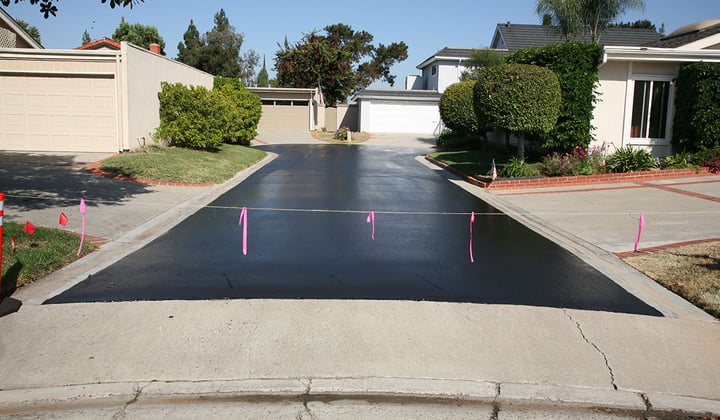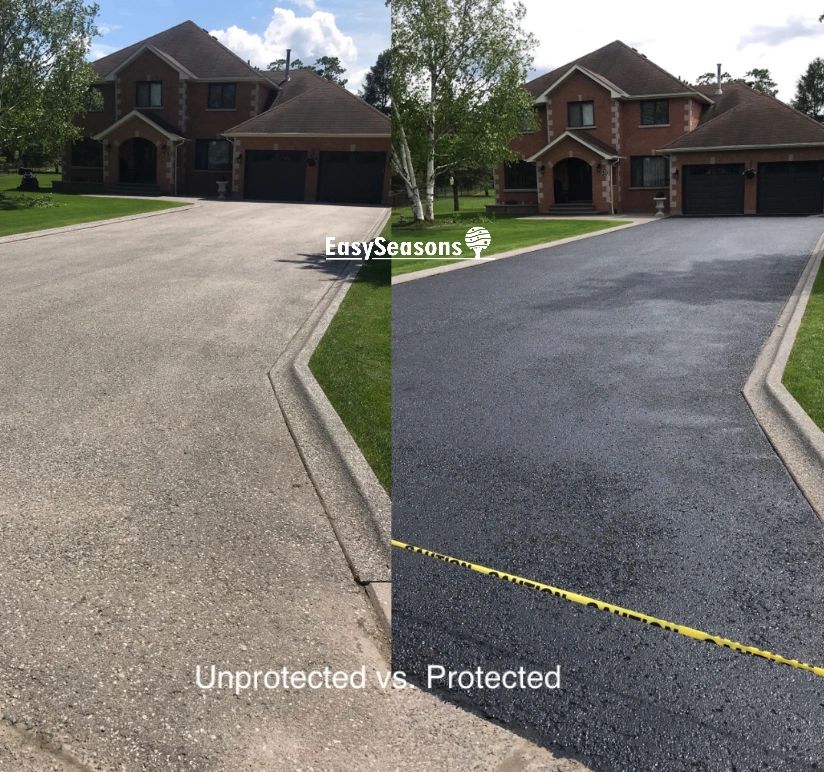Seal in Top Quality: Specialist Solutions for Asphalt Repair and Sealing
Seal in Top Quality: Specialist Solutions for Asphalt Repair and Sealing
Blog Article
Cold Mix Asphalt Vs. Hot Mix Asphalt: Which Is Right for You?

Composition Distinctions
Cold mix asphalt is produced by emulsifying the asphalt binder with water and an emulsifying agent before blending it with accumulation. The warm mix asphalt manufacturing process includes heating up the aggregate and asphalt binder individually before combining them at the asphalt plant.
Additionally, chilly mix asphalt has a tendency to be less dense and more flexible than hot mix asphalt. This flexibility makes it better matched for areas with greater degrees of motion, such as driveways or roads with rush hour. On the other hand, warm mix asphalt is recognized for its high longevity and resistance to rutting and fracturing, making it a recommended option for highways and high-traffic roads where longevity is critical.
Installment Refine Variations
The process of setting up cool mix and hot mix asphalt displays remarkable variances in their requirements and procedures. In comparison, warm mix asphalt demands a more sophisticated installment process. Due to the heating demands, warm mix asphalt installments are generally brought out by experts with customized tools, guaranteeing a much more long-term and structurally audio outcome.
Resilience and Long Life Factors
When considering asphalt alternatives, sturdiness and longevity are crucial aspects to evaluate for lasting sidewalk performance. Hot mix asphalt (HMA) is recognized for its outstanding toughness and durability.
In regards to durability, HMA generally outperforms CMA as a result of its exceptional toughness and resistance properties. HMA sidewalks have a longer life span, calling for less constant repair work and upkeep, which can equate to set you back savings in the future. Furthermore, HMA sidewalks are much more conveniently adjustable to fulfill particular task demands, better learn the facts here now enhancing their longevity.
Cost Factors To Consider
Considering the financial implications is an essential aspect when assessing the choice between hot mix asphalt (HMA) and chilly mix asphalt (CMA) for sidewalk jobs. While the preliminary expense of hot mix asphalt is usually higher than that of cold mix asphalt, HMA frequently provides a more cost-effective remedy in the lengthy run due to its remarkable longevity and long life.
In enhancement to material prices, it's vital to take into consideration the costs linked with setup and upkeep when comparing HMA and CMA. Eventually, the choice between HMA and CMA must take right into account not just my latest blog post the preliminary price however additionally the long-term monetary effects to determine the most economical alternative for the particular sidewalk task.
Environmental Impact Comparison
Contrast of the ecological impacts between warm mix asphalt (HMA) and cool check my blog mix asphalt (CMA) reveals unique distinctions in sustainability techniques. HMA production requires heats, bring about increased energy intake and greenhouse gas emissions. The process likewise releases unstable natural substances (VOCs) and harmful air contaminants (HAPs) right into the ambience. In comparison, CMA is produced and applied at lower temperatures, decreasing energy usage and discharges dramatically. The reduced manufacturing temperature levels of CMA cause decreased gas consumption and lower degrees of carbon dioxide exhausts, making it a more eco-friendly choice.
Furthermore, the usage of CMA commonly includes reusing existing asphalt pavement, promoting source conservation and lowering the amount of waste sent out to garbage dumps. By opting for CMA over HMA, roadway construction tasks can contribute favorably to environmental preservation efforts.
Verdict
To conclude, the option in between cold mix asphalt (CMA) and warm mix asphalt (HMA) relies on various aspects such as composition, installation process, resilience, longevity, expense, and ecological influence. angle parking. While CMA supplies a cost-efficient and quick service for small fixings, HMA ensures exceptional toughness and longevity for heavy web traffic areas. Take into consideration these variables carefully to identify which sort of asphalt is the ideal selection for your paving requires

Taking into consideration the economic implications is a critical aspect when examining the choice between warm mix asphalt (HMA) and cool mix asphalt (CMA) for pavement jobs. While the first cost of hot mix asphalt is normally higher than that of cold mix asphalt, HMA commonly offers a more economical remedy in the lengthy run due to its exceptional toughness and long life. angle parking.Comparison of the ecological influences in between hot mix asphalt (HMA) and cool mix asphalt (CMA) discloses distinct differences in sustainability practices.In final thought, the option in between cool mix asphalt (CMA) and warm mix asphalt (HMA) depends on numerous factors such as composition, installation process, sturdiness, longevity, price, and ecological impact
Report this page